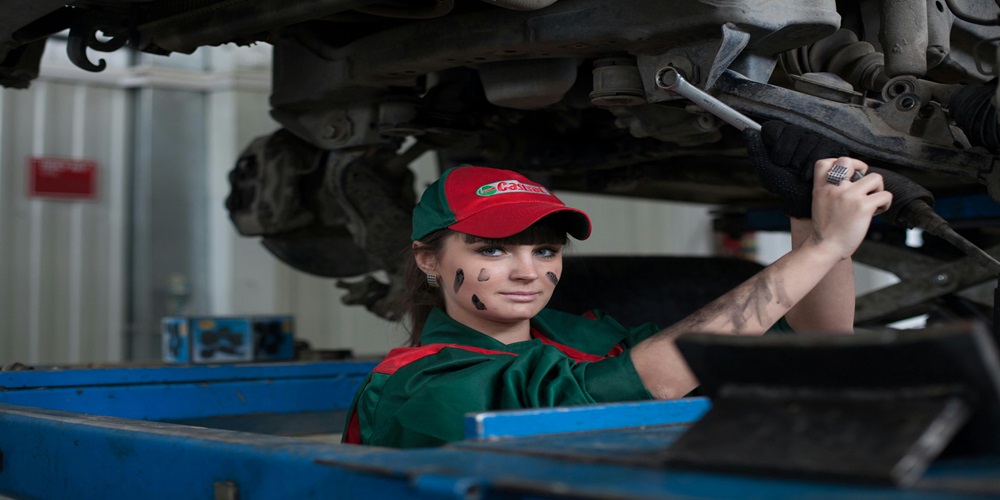Breaking Into the Automotive QA and Safety Job Market: Tips and Insights

Are you ready to shift gears in your career and steer towards the dynamic world of automotive QA and safety? As the industry revs up with innovations like electric vehicles, autonomous driving, and advanced driver-assistance systems, the demand for skilled professionals is accelerating at an unprecedented pace. But how do you navigate this competitive landscape and secure your place behind the wheel? In this blog post, we’ll provide you with essential tips and insider insights to help you break into the automotive QA and safety job market. Whether you’re a seasoned professional looking to pivot or a fresh graduate eager to make your mark, buckle up as we explore strategies to enhance your skills, stand out from the crowd, and drive your career forward!
Introduction to the Automotive QA and Safety Job Market
The automotive industry is buzzing with innovation, technology, and a growing demand for safety. As vehicles become more complex and autonomous features emerge, the need for quality assurance (QA) and safety professionals has never been greater. If you’re looking to break into this dynamic field, now is the perfect time to dive in.
Many people might not realize just how vital QA and safety roles are within automotive companies. These positions ensure that every vehicle rolling off the assembly line meets stringent standards for performance, reliability, and passenger protection. With electric vehicles on the rise and self-driving technology advancing rapidly, there’s an exciting landscape waiting to be explored.
Whether you’re a seasoned professional seeking new challenges or someone eager to start fresh in your career journey, understanding what it takes to succeed in Quality Assurance and Safety Positions in Automotive can set you apart from the competition. Let’s take a closer look at this thriving job market!
Why QA and Safety is Crucial in the Automotive Industry
Quality assurance and safety are non-negotiable in the automotive industry. With millions of vehicles on the road, ensuring their reliability directly impacts public safety.
Automotive QA processes help identify defects before they reach consumers. This proactive approach prevents accidents caused by mechanical failures or design flaws.
Moreover, as technology advances—think electric vehicles and autonomous driving—the complexity increases. Thorough testing is vital to guarantee that new features operate flawlessly under various conditions.
Regulatory standards also play a significant role. Automakers must comply with strict guidelines to avoid legal repercussions and maintain consumer trust.
Additionally, a reputation for quality can set a brand apart in a crowded market. Consumers are more likely to choose companies known for their commitment to safety over those with questionable records.
In this landscape, investing in QA and safety isn’t just about compliance; it’s essential for long-term success and innovation.
Types of QA and Safety Positions Available in the Automotive Industry
The automotive industry offers a diverse range of Quality Assurance and Safety positions. Each role plays a critical part in ensuring vehicles meet safety standards and function reliably.
Quality Assurance Engineers focus on the development process, implementing testing protocols to catch defects before production. They analyze data from tests and ensure compliance with industry regulations.
Safety Analysts concentrate on vehicle performance under various conditions. They evaluate potential hazards and work closely with design teams to mitigate risks associated with new technologies.
Compliance Officers ensure that manufacturers adhere to legal requirements. They review processes to make sure all components comply with state and federal laws.
Lastly, Field Test Engineers conduct real-world assessments of vehicles, providing valuable feedback on how cars perform in everyday situations. These roles highlight the importance of thorough evaluation at every stage of automotive development.
Qualifications and Skills Needed for Automotive QA and Safety Jobs
To excel in Quality Assurance and Safety positions in the automotive sector, a blend of technical knowledge and soft skills is essential. A degree in engineering, computer science, or a related field often serves as a solid foundation.
Proficiency in quality management systems like ISO 9001 is highly valued. Familiarity with industry regulations such as FMVSS can set candidates apart.
Analytical thinking plays an important role too. Professionals must assess risks effectively while ensuring compliance with safety standards. Attention to detail cannot be overlooked; even minor oversights can lead to significant consequences.
Communication skills are vital for collaboration across various teams. QA professionals frequently liaise between engineers, production staff, and management to ensure all parties align on safety protocols.
Certifications like Six Sigma or Certified Quality Engineer (CQE) add credibility and demonstrate commitment to quality practices within the automotive landscape.
How to Gain Experience or Training in QA and Safety for Automotive
Gaining experience in Quality Assurance and Safety positions in automotive can be approached through multiple avenues. Start by considering internships or co-op programs. Many companies offer hands-on opportunities that provide real-world exposure.
Online courses and certifications are also valuable assets. Organizations like SAE International provide specialized training geared toward industry standards, enhancing your resume significantly.
Networking plays a crucial role in this field. Attend industry conferences, join professional organizations, or connect with mentors who can guide you through the process.
Volunteering for projects related to vehicle safety at local automotive clubs or educational institutions allows you to build practical skills while showcasing your commitment to the profession.
Lastly, consider shadowing experienced professionals. Observing daily tasks offers insights into the responsibilities of QA and safety roles and helps clarify what skills are paramount for success.
Tips for Landing a Job in Automotive QA and Safety
Networking is key. Attend industry events and join professional organizations related to automotive QA and safety. Engaging with current professionals can open doors to job opportunities.
Tailor your resume for each application. Highlight relevant skills, certifications, and experiences that align with the specific role you seek. This makes it easier for hiring managers to see your fit.
Consider internships or volunteer positions in automotive environments. Real-world experience not only boosts your resume but also helps you make valuable connections in the field.
Stay updated on industry trends and technologies. Knowledge about emerging standards shows potential employers that you’re proactive and eager to learn.
Finally, practice common interview questions specific to automotive QA and safety roles. Being prepared will help you convey confidence during interviews while showcasing your expertise effectively.
Interview with an Experienced Professional: Insights into the Industry
We had the chance to speak with Sarah, a seasoned professional in automotive quality assurance. Her journey began over a decade ago, and she has seen the industry evolve dramatically.
Sarah emphasized the importance of adaptability. “The tech is changing fast,” she said. “Staying current is essential.” With electric vehicles and autonomous driving on the rise, understanding emerging technologies can set candidates apart.
She also highlighted teamwork as a critical factor for success. “Quality assurance isn’t just about testing; it’s about collaboration across departments,” she noted. Building relationships with engineering and production teams enriches knowledge and fosters better outcomes.
When asked about common misconceptions, Sarah pointed out that QA roles are not merely reactive but proactive. Professionals must anticipate issues before they arise to ensure safety standards are met consistently.
Her insights provide valuable guidance for anyone looking to break into quality assurance and safety positions in automotive industries today.
Common Challenges Faced by Professionals in this Field
Professionals in automotive QA and safety often face significant challenges. One major hurdle is keeping up with rapidly changing regulations. Compliance standards evolve quickly, making it crucial for professionals to stay informed.
Another challenge lies in the integration of new technologies. Electric vehicles and advanced driver-assistance systems introduce complexities that require constant learning and adaptation.
Communication can also be a barrier. Collaborating with various departments—engineering, production, management—can lead to misunderstandings or conflicting priorities.
Time constraints present additional pressure. Professionals must balance thorough inspections while meeting tight deadlines without sacrificing quality or safety.
Finally, the emotional weight of responsibility can be daunting. The stakes are high; ensuring vehicle safety directly impacts lives on the road, adding stress to an already demanding role.
Career Growth Opportunities in Automotive QA and Safety
The automotive industry is evolving rapidly, and so are the career growth opportunities in QA and safety. Professionals in this field can expect to advance through various paths, thanks to technological advancements and stricter regulations.
With experience, you may transition into managerial roles overseeing quality assurance teams or compliance departments. This hands-on leadership enhances your skill set while allowing you to influence company policies directly.
Specialization is another avenue for growth. Focusing on areas like software testing, crash safety analysis, or environmental impact assessments can make you an invaluable asset within a specific niche.
Networking plays a crucial role too. Engaging with industry professionals at conferences or seminars opens doors for mentorships and collaborations that can propel your career forward.
Lastly, continuous education keeps you ahead of the curve. Certifications related to automotive standards not only bolster your resume but also signal commitment to excellence in quality assurance and safety practices.
Conclusion
The automotive industry is constantly evolving, and with it, so is the job market for quality assurance and safety professionals. By following these tips and gaining insights into the industry, you can position yourself for success in this competitive field. Stay up-to-date with emerging technologies, showcase your skills through continuous learning and certifications, network with professionals in the field, and most importantly, have a passion for ensuring safety in the automotive industry. With determination and persistence, you can break into this exciting career path and make a positive impact on the future of transportation.





